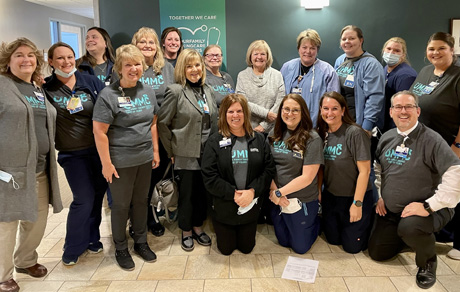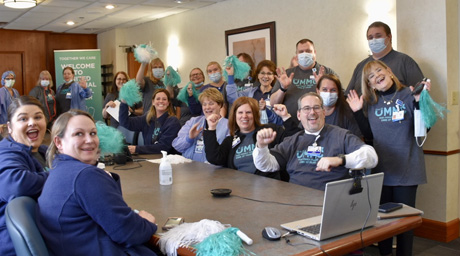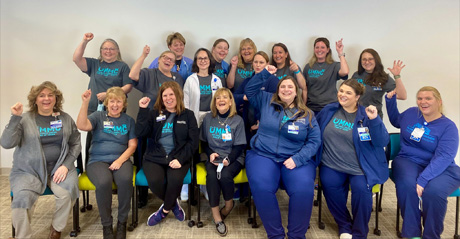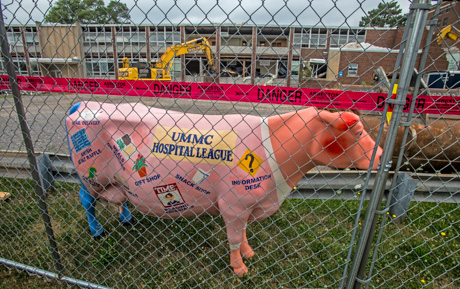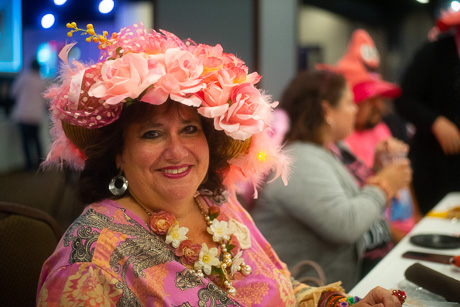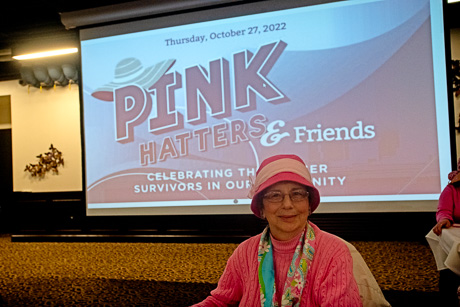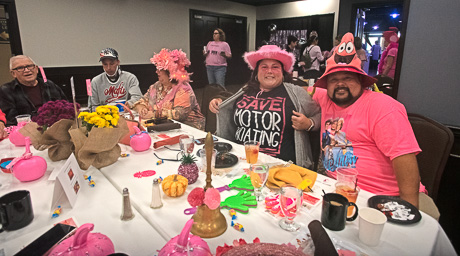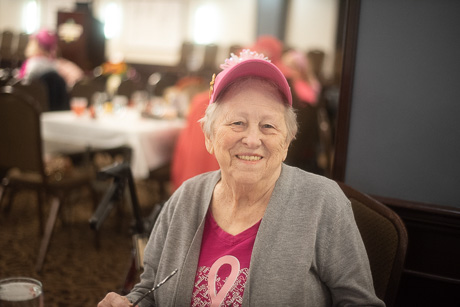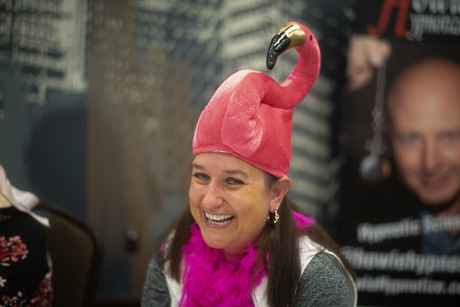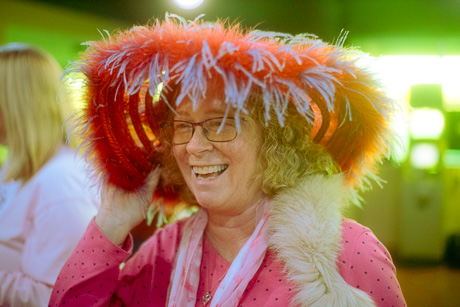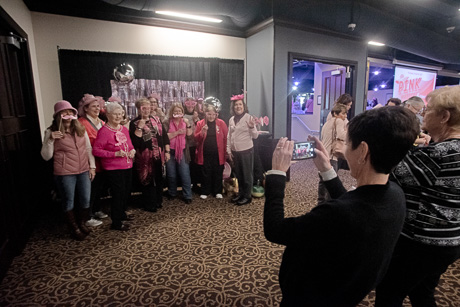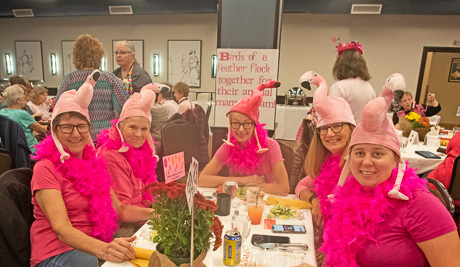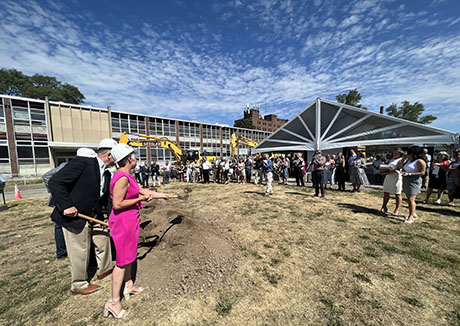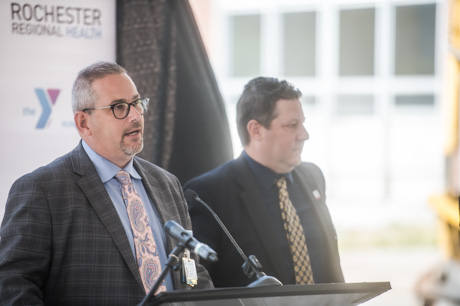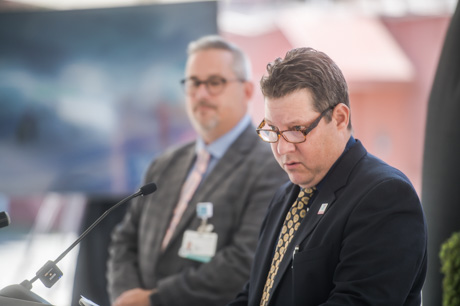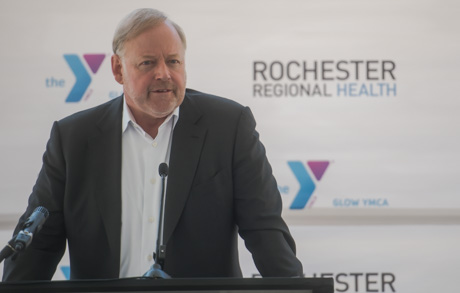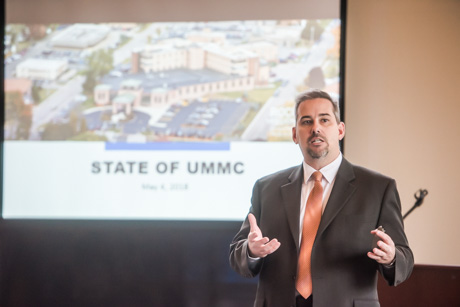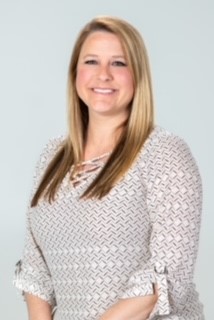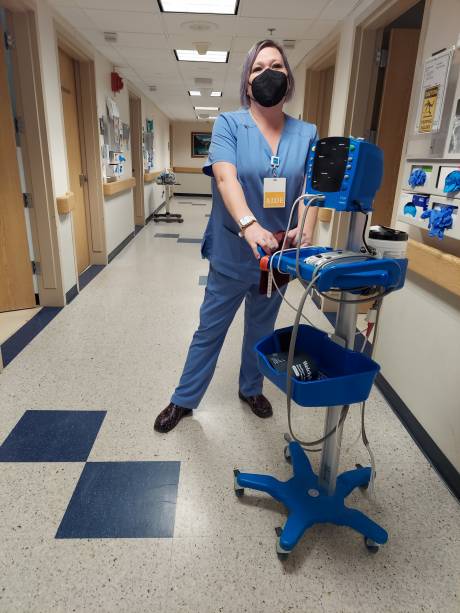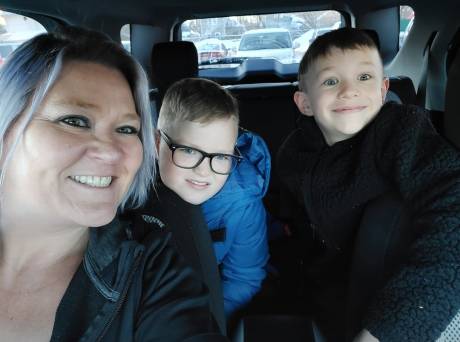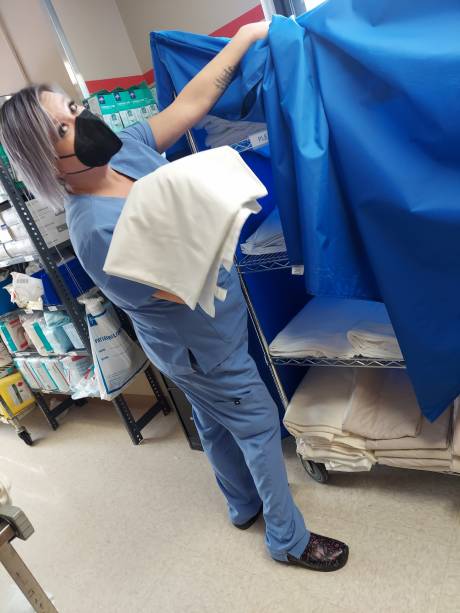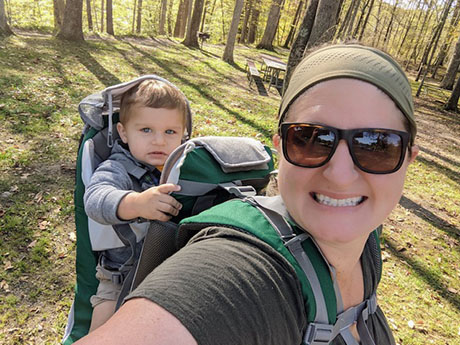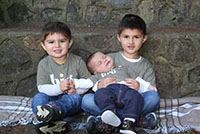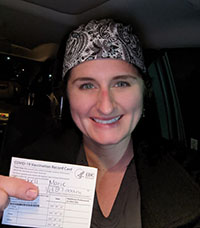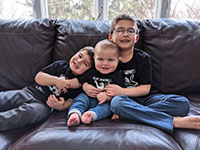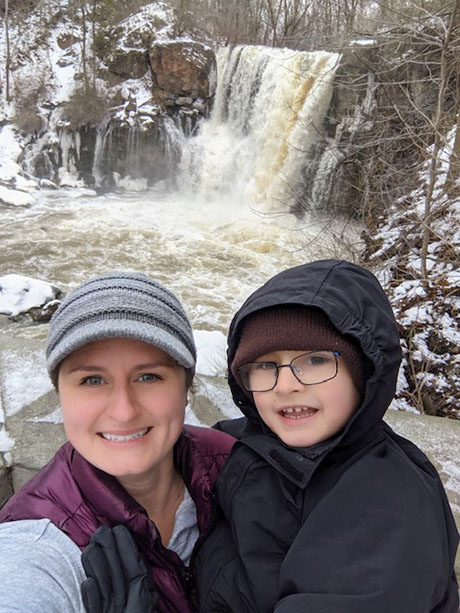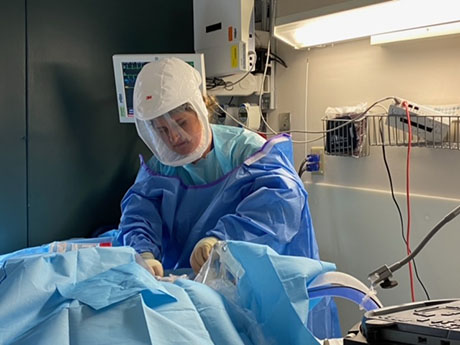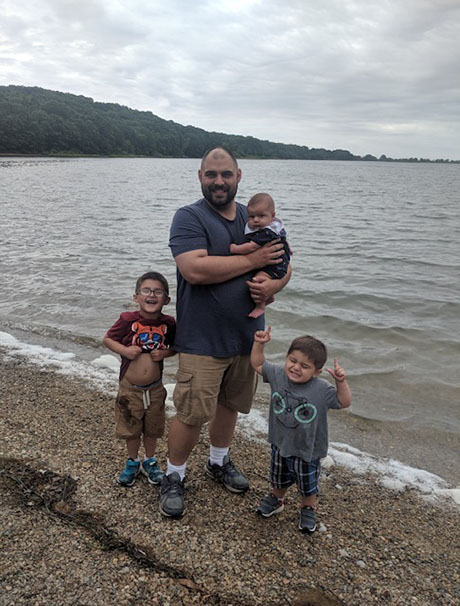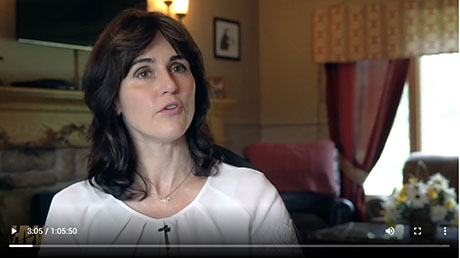A now-former employee of United Memorial Medical Center in Batavia has attracted national attention in recent weeks as a self-proclaimed “whistleblower” around what she describes as a “cover-up” of potential dangers of the COVID-19 vaccine.
A GoFundMe campaign that appears to have been created by Deborah Conrad states that the hospitalist physician assistant “recently lost her job due to the COVID-19 vaccine mandate.” A spokesperson for the Rochester Regional Health system confirmed to The Batavian on Oct. 13 that Conrad was no longer employed at the hospital.
But in a description for the GoFundMe campaign, which had attracted more than $74,000 from roughly 1,500 donors as of Sunday morning, Conrad suggested that she intends to remain in the public eye. Conrad has spoken to multiple media outlets in recent months, at times making controversial statements about the COVID-19 vaccine that other medical professionals say misrepresent the risks of immunization.
“As I move into this new chapter in my life, no longer able to do the job I have loved for the last 15 years, I want to make my sacrifices count,” the GoFundMe description reads. “As I gain more and more exposure to media outlets, I need to travel to speak at these events, and also support my family at the same time. I need the community around me to lift me up as I march this path of truth.”
Conrad declined through a third party to be interviewed by The Batavian.
STATEMENTS TRIGGER CONTROVERSY
While employed at UMMC, Conrad spoke to multiple media outlets in September, including the New York Times, about her hesitancy around the COVID-19 vaccine. She has also spoken locally on the matter.
Speaking to a crowd at EverPresent Church in Batavia at an event hosted by the church on Sept. 30, Conrad said that her public statements should not be interpreted as an attempt to discourage people from getting the COVID vaccine.
“I support you no matter what decision you make,” Conrad said. “I just want to make sure you have an informed choice.”
But a number of the insinuations and speculations that Conrad has made publicly, particularly those regarding UMMC patients whose conditions she has suggested may have been caused by the vaccine, have been characterized by other medical professionals as highly unlikely and not in line with the most up-to-date scientific research.
In an hour-long video interview published in September by The HighWire, a website run by the Texas-based anti-vaccine group Informed Consent Action Network, Conrad stated that her hospital had seen a noticeable increase in patients coming in with conditions including heart attacks, strokes, blood clots, gastrointestinal bleeds, sepsis, pneumonia, appendicitis, pancreatitis and “recurrent cancers” following the initial public rollout of the COVID-19 vaccines in early 2021.
A spokesperson for Rochester Regional Health told The Batavian that hospital administration was not aware of any such increase.
“To our knowledge, no clinician, epidemiologist, hospital leader, or principal investigator running a clinical trial has commented, remarked or expressed similar experience or concern,” the spokesperson wrote in an email to The Batavian. “The only noticeable difference in admissions after the vaccines became available was that COVID-19 admissions significantly and dramatically decreased until the Delta variant became more prevalent in our area.”
If the hospital did see such an increase, that uptick could have been due to other factors including side effects of the COVID-19 virus itself, Dr. John Crane, a physician and professor at the University at Buffalo Jacobs School of Medicine and Biological Sciences, notes—"or to delays in needed care due to fear of catching COVID-19 in the hospital or in the emergency room, as has been seen many times in our country.”
Conrad went on to cite as examples several specific cases that she believed may have been linked to the vaccine, including a patient “whose cancer came back from remission and rapidly killed the individual” after they were vaccinated. She told the interviewer that she had also witnessed “new cancer [cases] come out of nowhere,” implying that any or all of these cases may have been caused by vaccination — a suggestion that Crane describes as “bogus.”
“There are millions of Americans receiving care for cancer at any given time in our country,” Crane wrote in an email to The Batavian. “Many of them achieve a prolonged remission or even achieve a cure. But there are thousands of others who relapse every week, regardless of whether they received a COVID-19 vaccination or not.”
While there is no medical evidence linking COVID vaccination with an increased likelihood of developing cancer, the U.S. Centers for Disease Control and Prevention and others are currently monitoring to learn whether COVID-19 infection itself carries a higher risk of developing subsequent cancers, Crane noted.
VACCINE DATABASE IS A TOPIC OF CONCERN
One of Conrad’s primary concerns, as she has stated in multiple speaking engagements and on her GoFundMe page, is public awareness of the federally-run Vaccine Averse Event Reporting (VAERS) database. The database, which has existed since 1990 and is co-managed by the Centers for Disease Control and Prevention and the U.S. Food and Drug Administration, “accepts and analyzes” voluntarily-submitted reports of “adverse events,” or possible side effects, after a person has received a vaccination, according to a description on the official VAERS website.
“Most people don’t even know what VAERS is,” Conrad said at the EverPresent event in late September. “I didn’t know what VAERS was and I’m a health care worker.”
In the HighWire video interview, Conrad said that she had submitted the names and information of more than 120 UMMC patients to the database since the COVID-19 vaccine was rolled out, including an estimated 50 patients in the span of one particular month — accounting for the bulk of all the VAERS reports submitted by the hospital in that time, according to Conrad.
At one point, Conrad said, she approached hospital administration to ask for support in her work reporting patients to the VAERS database, as it had become a “full-time job.” That request was “met with resistance,” Conrad told the HighWire interviewer.
A spokesperson for Rochester Regional Health confirmed to The Batavian that such a conversation occurred, but disputed Conrad’s characterization of the hospital’s response as that of “resistance.”
“The administration has always confirmed that it is important to follow VAERS reporting requirements,” the spokesperson said.
In an undated phone call with UMMC President Dan Ireland recorded by Conrad, a clip of which was played in the video produced by The HighWire, Ireland clarified that the hospital system’s policy was that each health care provider “has the responsibility to report on their own patient” when it comes to submitting adverse events to the VAERS database.
The number of reports submitted by Conrad should not be interpreted as evidence that the same number of patients in fact experienced side effects from the vaccine, medical experts say. While health care workers are required by law to report certain adverse events—in other words, certain injuries, illnesses, or deaths—that occur within a specific time period after vaccination, not all events reported to VAERS are caused by vaccinations and VAERS reports “generally cannot be used to determine if a vaccine caused or contributed to an adverse event or illness,” according to the FDA website.
One example, according to Crane: If a newly-vaccinated patient becomes involved in a severe car crash on their way home from the vaccine clinic, their injuries from the crash could be reported as an adverse event—even if the crash was caused by their car’s malfunctioning autopilot feature and not by the vaccine.
For some patients and their families, a lack of broad public awareness of the database have lead to confusion around why certain cases are reported to VAERS and what these reports indicate.
Howard Owens of Batavia told The Batavian that he was contacted in August by a UMMC nurse, who informed him that his hospitalized wife, Billie, had been added to the VAERS database. (Note: Owens is the publisher of The Batavian. Billie Owens, who passed away on Oct. 15, was editor of The Batavian.) The call left Owens feeling perplexed. He had a clear understanding of his wife's health issues, some of which pre-dated her vaccination. He consulted with Billie's doctors who definitively agreed that her condition had not been caused by the COVID vaccine.
“We knew why Billie had become ill,” Owens said. “It had nothing to do with COVID or the vaccine.”
The parameters of VAERS reporting -- and what his wife's inclusion in the database meant -- were not made clear to him during the call, Owens said. He said he was told during that call that Billie's inclusion in the database meant that she was confirmed to have had an adverse reaction. (When contacted by The Batavian, the nurse confirmed that she had provided Owens with a VAERS identification number but did not provide any other details about their exchange.)
When Owens watched Conrad’s interview with The HighWire — in which she suggested that a number of UMMC patients with serious conditions may have been hospitalized due to side effects from the vaccine — his confusion turned to frustration and anger, he said, largely on behalf of other families who may have found themselves in similar situations, leaving them susceptible to misinformation about the vaccine.
"Making false claims about adverse reactions to patient families doesn't strike me as caring about patients,” Owens told The Batavian. “It seems like the exact opposite: Causing unnecessary drama in the lives of people already facing enough trauma at a critical time in their loved one's care.”
CONRAD: GOAL IS 'OPEN-MINDED HEALTHCARE'
Speaking at EverPresent Church, Conrad said she was invited to participate in the interview with The HighWire after she learned that ICAN had, unprompted, paid her legal fees for hiring a New York City-based attorney while she was employed at UMMC.
“Of course I was scared to death and I knew my job would be on the line as a result,” Conrad said, in reference to the interview. “I knew I would be exposed… I don’t want to hurt anybody, but I just can’t stand to see the injustice going on.”
In the description for her GoFundMe campaign, Conrad says that she is interested in opening her own local clinic “offering unbiased, open-minded healthcare” in the future. In the meantime, she wrote, she hopes that her public statements will prompt discussion of “how to help those possibly injured and give them a voice.”
“I didn’t want this job, but I just kept hearing [God] call me,” Conrad told the crowd at EverPresent Church. “I just keep hearing him tell me, ‘Don’t be afraid. Keep going. Keep doing what you’re doing.’”
Gretel Kauffman, a former resident of Elba, is a special corresponded for The Batavian.
Photo: Screen capture from video interview with Conrad on The HighWire

